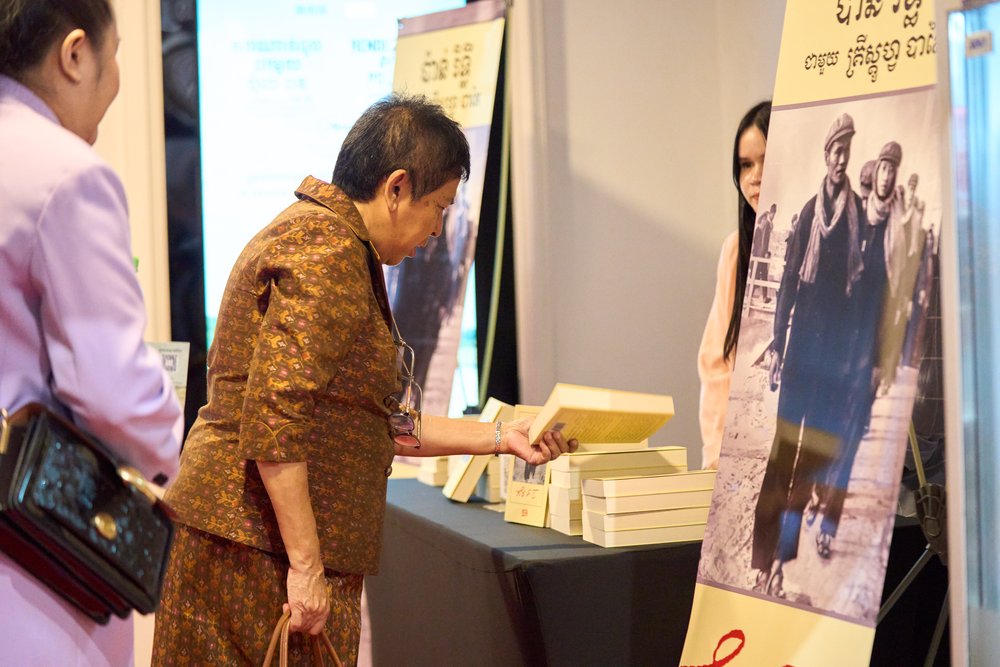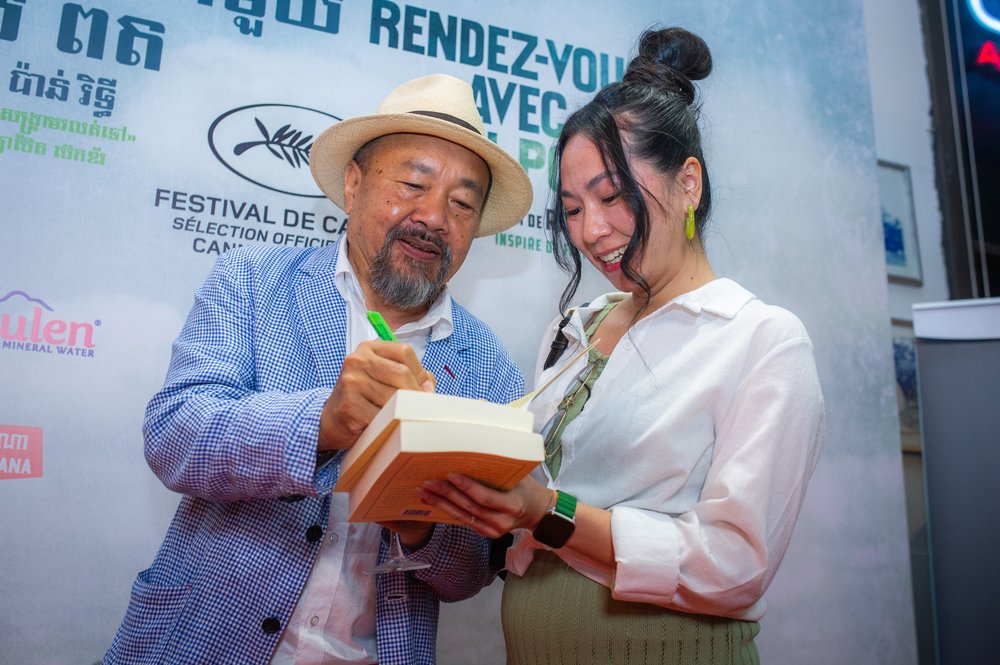Rithy Panh’s Elimination to be published in Khmer
12 August 2024
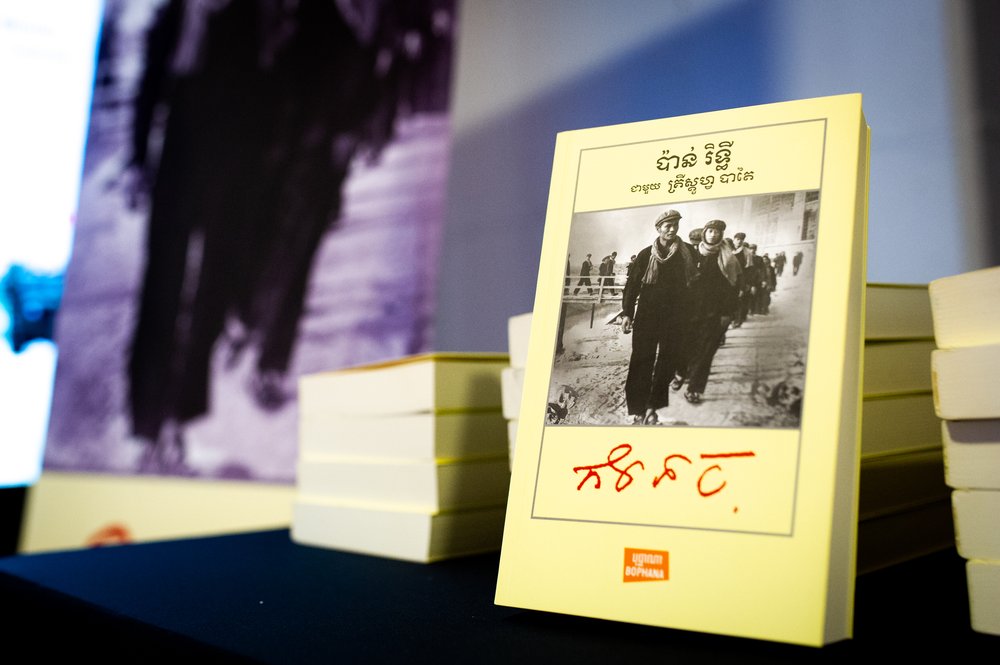
Rithy Panh's book Elimination. Photo credit: Bophana Audiovisual Center
The filmmaker’s powerful account of the Khmer Rouge regime will soon be available to Khmer readers
We are pleased to announce our support for the publication of Elimination in the Khmer language. The book was originally written in French by acclaimed Cambodian filmmaker Rithy Panh with French novelist Christophe Bataille. First published in 2011 by Grasset Publishing, it has since been translated into Japanese and several European languages. However, this text has now been available in the Khmer language until now.
Rithy Panh is also the co-founder of Bophana Audiovisual Resource Center who will publish the book. He explains, “Bophana Center had the book translated into Khmer by Lim Im several years ago. However, we faced challenges in printing the translated version due to funding constraints. Fortunately, thanks to the generous support of Rei Foundation, we are now able to proceed with publishing the book. This enables us to share this work with a wider audience in Cambodia, ensuring that the narrative and lessons of the Khmer Rouge era are accessible in the local language."
Elimination is a searing personal memoir of a turbulent time in Rithy Panh’s life, and for the nation as a whole. Aged 13 when the Khmer Rouge took power in Cambodia, Rithy Panh lost most of his family members to the regime in its first year and survived only through the kindness of others. The ways the regime declared war on people they perceived as the educated elite were as mundane as they were brutal: colourful clothing had to be dyed black, even the use of names were forbidden. The wearing of eyeglasses was enough to have someone killed.
The following passage (taken from John Cullen’s English translation of Elimination), demonstrates Rithy Panh’s father’s commitment to literacy, including his own translation of foreign texts to increase access to information for his fellow Cambodians.
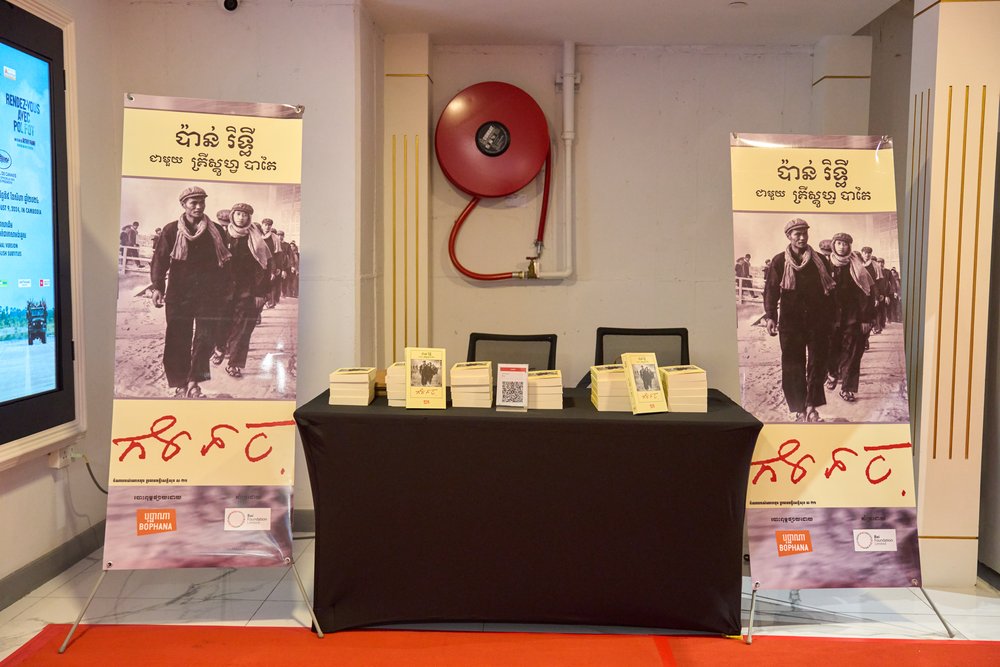
The launch booth set-up at Legend Premium Exchange Square. Photo credit: Bophana Audiovisual Center
— A few days before April 17, 1975, one of my father’s friends came to our house to warn him, “The Khmer Rouge are getting closer. You and your wife and children should leave. There’s still time. We’ll find a solution for you—a plane to Thailand, for example. You must flee.” My imperturbable father refused to budge. He wasn’t afraid. A man devoted to education, he was a servant of the state and had always worked for the general good. Once a month, in his spare time, he’d meet with some friends—professors, school inspectors—and proofread translations of foreign books into the Khmer language. He didn’t want to leave his country.
Rithy Panh presents two very different perspectives within the book: the first, that of a survivor; the second, that of an accomplished filmmaker and historian. Juxtaposed with his recollections from his youth are conversations between himself and Kaing Guek Eav, better known as Duch, a Khmer Rouge official who ran the infamous S-21 (Tuol Sleng) prison where around 20,000 people were murdered. The chilling interviews were conducted in 2010 for the filmmaker’s 2011 documentary Duch, Master of the Forges of Hell, and Duch is no less sinister for the time that has elapsed since his work for the Khmer Rouge killing machine.
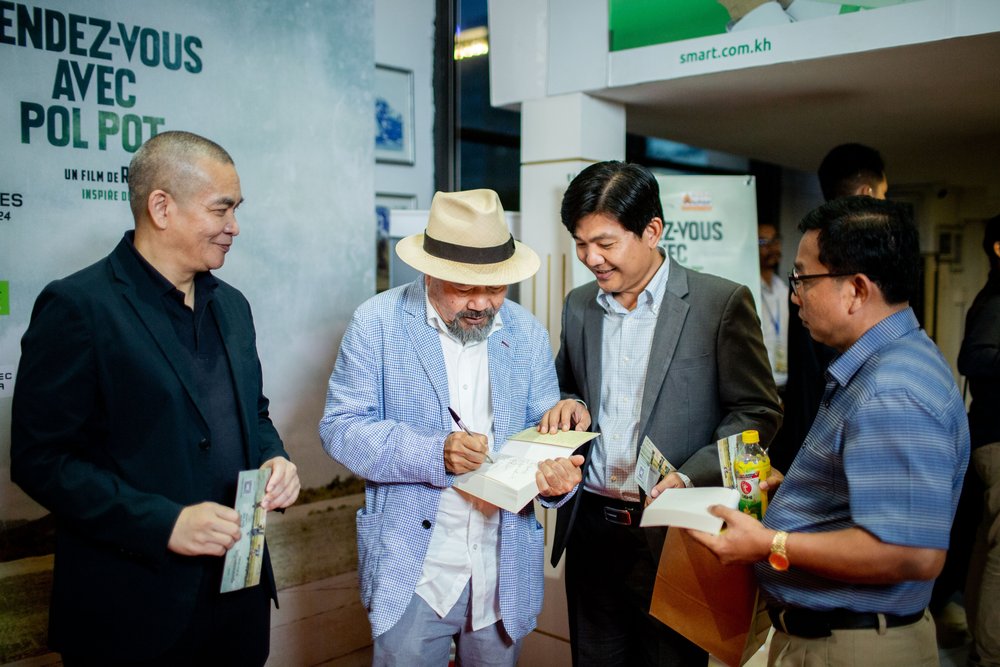
Mr. Rithy Panh autographing his book Elimination. Photo credit: Bophana Audiovisual Center.
Publishing Elimination in Khmer is important for several reasons. Rithy Panh notes, “It supports the work of the preservation of memory, ensuring that the narratives and experiences of the era are maintained within the cultural context in which they occurred."
There is a well documented gap in understanding in Cambodia between the survivors of the Khmer Rouge, who were largely traumatised and in the years after, compelled to quietly rebuild their lives, and the younger generations, many of whom have very limited understanding of what their elders experienced. The publication of texts such as Elimination contribute to bridging this disparity of awareness between the generations. Rithy Panh hopes the book will provide young people “deeper insights into their country's history and the importance of human rights”.
Puthea Sim, programme coordinator at Bophana Center, is excited about the contribution this new publication will make for Cambodian society;
— “This new translation will help disseminate the facts of Cambodian history during the Khmer Rouge regime through the real-life experiences of Rithy Panh. It will serve as a valuable research resource and educational tool for students, researchers, academics, and the public.”
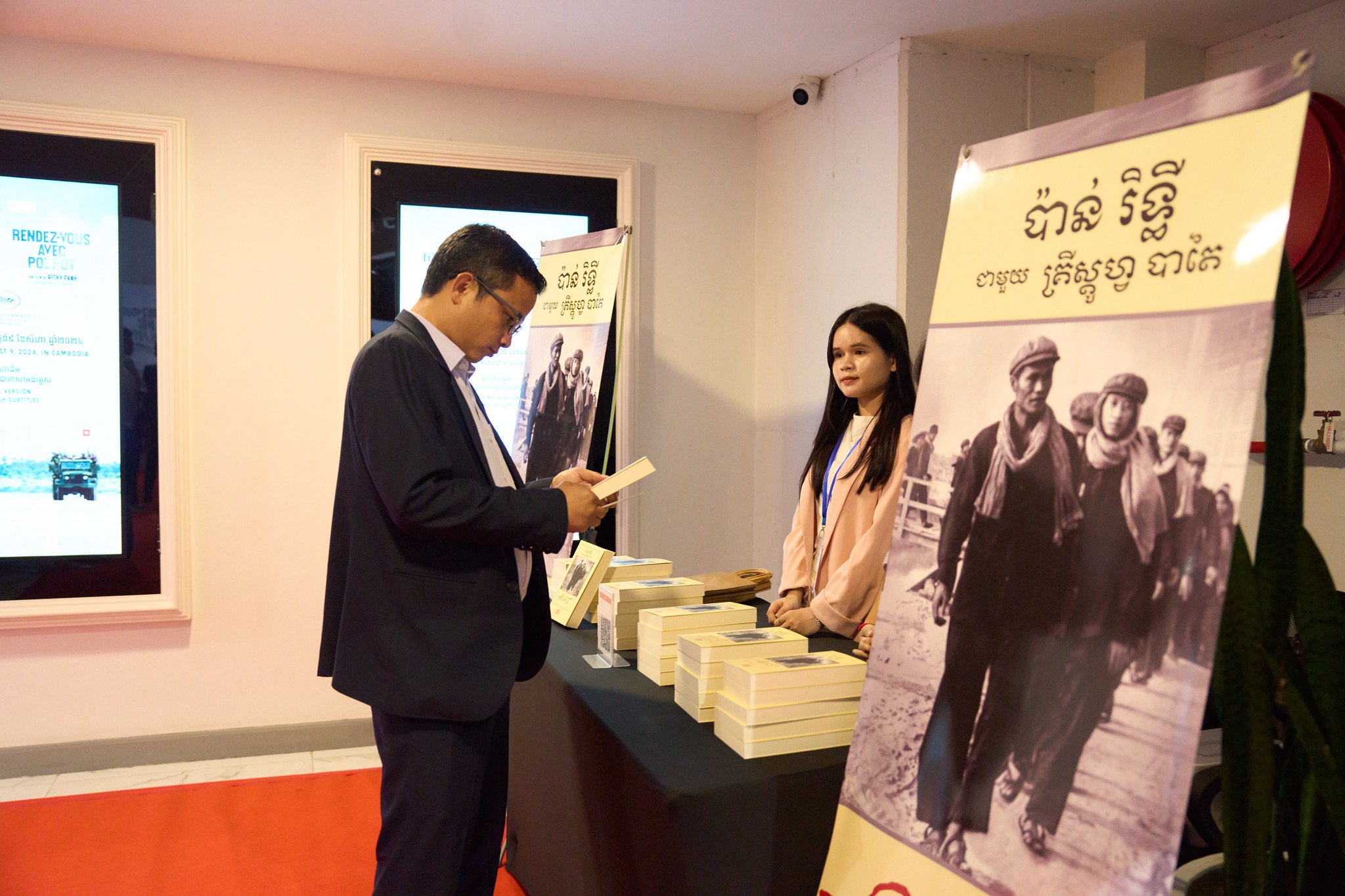
Sales of Rithy Panh's book Elimination at its launch event. Photo credit: Bophana Audiovisual Center.
There are many barriers for people in Cambodia to access their histories in written form. Publishing work about Cambodia, written by Cambodians, available in the Khmer language at an affordable cost, will remove at least some of these barriers. Rithy Panh notes, “this publication ensures accessibility for Cambodians, particularly the older generation who may not be proficient in foreign languages, allowing them to engage directly with my experience of the Khmer Rouge regime.”
Puthea Sim adds, “the Khmer version of the translated book offers a clear understanding for those who only read their local language, promoting a culture of reading among Cambodian readers with more publications available in Khmer.”
The Khmer version of Elimination also holds symbolic value. Rithy Panh says, “Having the book in Khmer respects its cultural significance, ensuring that the narrative remains rooted in the language and culture from which it originated, thus preserving its authenticity and enhancing its impact on Cambodian society.”
Language is often intrinsically linked to identity and is made up of complex elements; traditions, memories, and unique ways of articulating ideas. At the heart of this initiative is to contribute to the transmission of messages by Cambodian writers in their ownlanguage to the next generation who will inherit the history and culture of Cambodia.
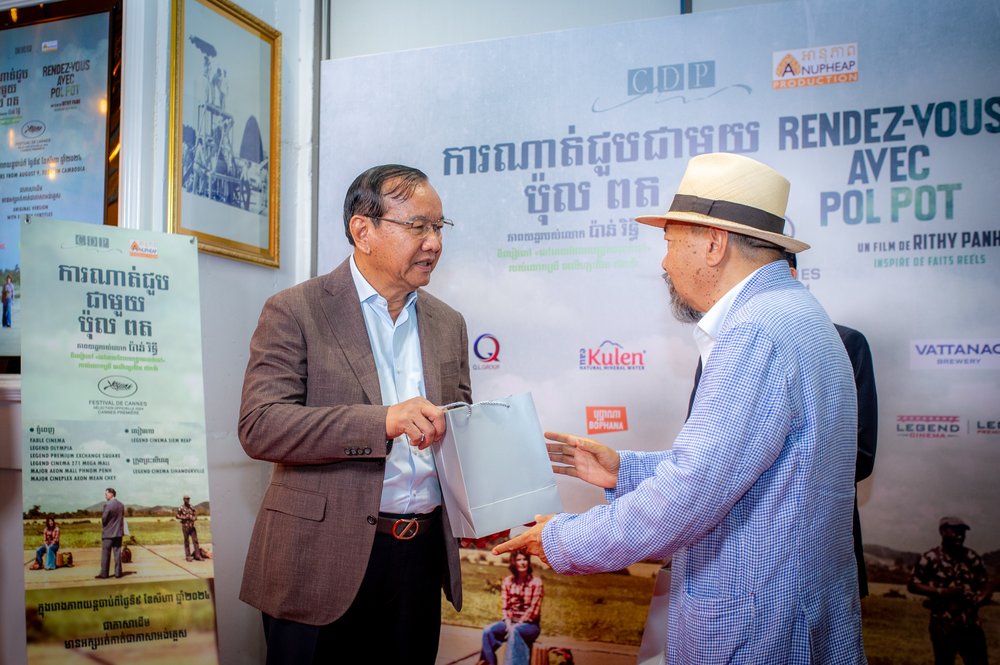
Mr. Rithy Panh presented a copy of his book Elimination to H.E. Mr. Prak Sokhonn, 1st Vice-President of the Senate. Photo credit: Bophana Audiovisual Center.
Bophana Center is a trusted partner who continues to identify and work to resolve issues of historical amnesia. The Center was established as a repository of cultural media, particularly video, but in recent years has expanded its programme to include a wide range of media and projects aimed at addressing this information loss.
These include the Khmer history app (supported by Rei Foundation and others) developed to bring important histories of Cambodian people to the younger generation on a medium they are familiar with.
Bophana Center have identified Elimination as being an important record of the Khmer Rouge era and are committed to publishing it in Khmer to make it accessible to the general public in Cambodia. Rei Foundation will support the Bophana Center to proofread the Khmer translation and publish the book. We are pleased to collaborate with Bophana Center on the publication of this important translation, and believe that it will contribute to Cambodian people having a deeper understanding of their own roots. Rithy Panh agrees, saying the book will, “facilitate healing and dialogue within Cambodia, encouraging conversations about reconciliation.”
Puthea Sim adds that the book will “allow for deeper exploration of past violence and provides insights on how to prepare current and future generations to avoid repeating history.”
Return to Journal




